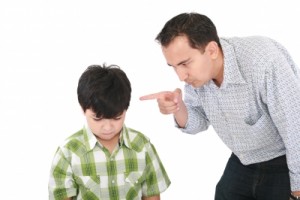(Editor’s note: I am very pleased to present this post written by one of our child psychiatry fellows – DCR)
by Sara Pawlowski, MD
It is indisputable that child abuse is devastating for children with widespread effects on a child’s physical and mental health. It is also widely believed that certain forms of child maltreatment, namely physical and sexual abuse (with reported prevalence rates of 8% and 1.6 % respectively) have more negative effects on children than emotional or verbal abuse. In this way, there exists a sort of hierarchy of abuse types where physical and sexual abuse represent the most severe form of child abuse punishable by law. Meanwhile, emotional and verbal
abuse (which includes behaviors such as ridicule, intimidation, rejection, and humiliation with a much higher prevalence rate of up to 36.3%) represent a possibly less impactful form of abuse which often fails to have any clear actionable clinical or legal guidelines. There are also stereotypes that exist about children who are abused and how they may develop and behave as a consequence of this maltreatment. Generally, it is thought that emotional abuse creates a depressed, anxious and withdrawn child while physical abuse leads to aggression and bullying others.
A recent study, however, tested the hypothesis that all forms of abuse have deleterious consequences and that these categorizations of abuse types and victim profiles are oversimplified. Using data obtained from a research summer camp which has existed for over 20 years to study a diverse set of low-income children from ages 5-13, they analyzed child protective services’ reports, children’s self-reports on depression, peer ratings of aggression, interviews with mothers and observations of the children at camp by staff members. In a total group of about 2,300 children who attended the camp over the years, about half of them had been maltreated. From these data, they separated out two groups into a non-maltreated and maltreated group with subcategories according to types of abuse and several other relevant measures. Then, they looked for corresponding mental health outcomes in children such as depressed mood and aggressive behaviors. The researchers asked: did these children have any pattern of response to abuse consistent with our broad cultural assumptions? Were the physically abused children more physically abusive to peers? Were the emotionally abused children more withdrawn and depressed? And, ultimately, did the type of abuse correspond to any discernable pattern of mental health outcome that we could predict?
What they found was striking in that the severity, frequency, diversity (meaning that that a child endures multiple, diverse forms of abuse) and duration of any type of abuse regardless of type (physical, sexual, emotional or neglect) led to global negative effects on mental health. Additionally, the type of abuse was not predictive of a child’s mental health outcome. In short, physical abuse is just as likely to lead to a child’s depression as emotional or verbal abuse. This study emphasizes that severity, frequency and duration of abuse predicts poor mental health outcomes rather than the specific type of abuse.
It is still within many clinicians’ repertoire of questions to ask when someone feels threatened or intimidated if there has also been physical abuse or action on these threats. While this may still be an important question to ask, this study suggests that the threats alone may have a negative impact on the child. If the impact of the most prevalent type of abuse, emotional and verbal abuse, is potentially as dire as other forms of abuse, it may be important to shift our interactions with children and families to reflect this understanding and emphasize prevention of all forms of abuse. And given the likelihood that emotional and verbal abuse will continue to be less actionable by child protection agencies, the task of reducing and preventing it may fall to us as clinicians.
In the future, the research team hopes to continue his work to examine how abuse impacts not just a child’s expression of mental health symptoms but also of a child’s personality and temperament. He wonders if child abuse can also change who a child is, their personality, how they think, feel, act and the very fabric of their identity. These are troubling suggestions but they also represent a more nuanced, complex understanding of the gravity of the impact of child abuse on a child’s development. Hopefully, the realizations as outlined in this study will result in prevention efforts for all kinds of maltreatment with the acceptance of the universal negative impact that abuse has on children.
Reference: Vachon, David D., Robert F. Krueger, Fred A. Rogosch, and Dante Cicchetti. “Assessment of the Harmful Psychiatric and Behavioral Effects of Different Forms of Child Maltreatment.” JAMA Psychiatry 72.11 (2015): 1135.
Tags: bully, child abuse, parenting, yelling


